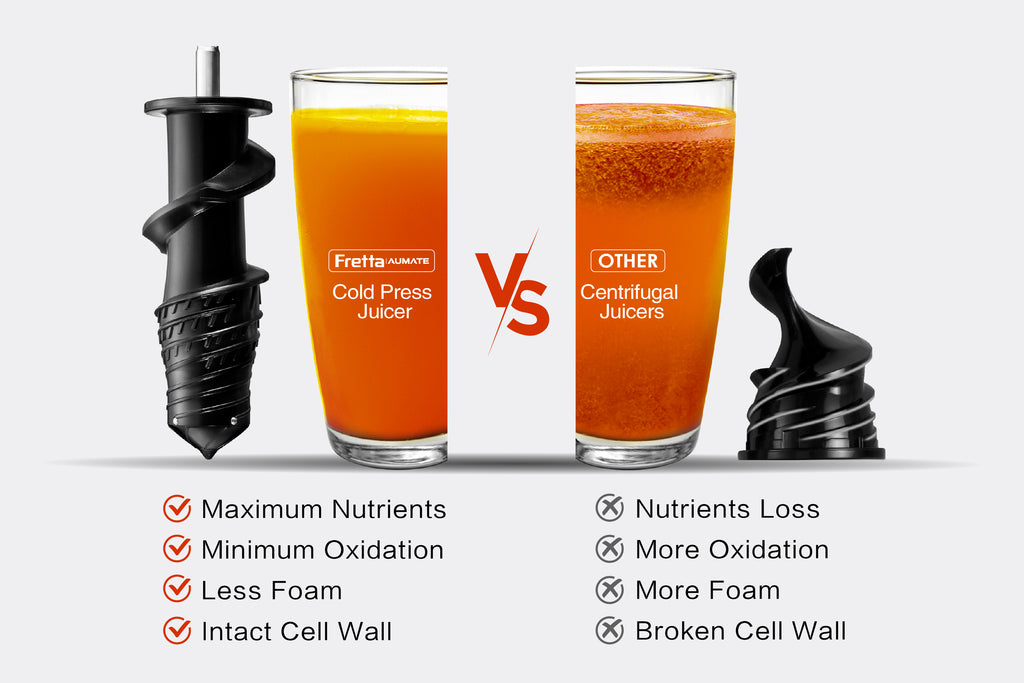
While juicing has become a popular way to increase our intake of fruits and vegetables, not all juicing methods are created equal. Slow juicing, also known as cold-pressed juicing, has been gaining popularity for its ability to extract more nutrients and provide a healthier alternative to traditional juicing methods.
What’s Slow Juicing?
Slow juicing is a method of juicing that involves slowly crushing fruits and vegetables to extract their juice. Unlike traditional juicing methods that use high-speed blades to chop and blend fruits and vegetables, slow juicing uses a slow masticating juicer to extract juice at a low speed. This slow process produces less heat and oxidation, which can damage the nutrients in fruits and vegetables.
Why is Slow Juicing More Nutritious?
The answer lies in the way slow juicing preserves the nutrients in fruits and vegetables. When fruits and vegetables are exposed to heat and oxygen, as they are in traditional juicing methods, their nutrients can become damaged or destroyed. Slow juicing, on the other hand, preserves the integrity of the nutrients in fruits and vegetables by minimizing heat and oxidation. This means that the juice produced by a slow juicer is more nutrient-dense than juice produced by a traditional juicer.
In addition to preserving nutrients, slow juicing also allows for the extraction of a wider variety of nutrients from fruits and vegetables. The slow masticating process used by slow juicers is able to extract more nutrients from fruits and vegetables than traditional juicers. This means that slow juicers are able to extract more vitamins, minerals, and antioxidants from fruits and vegetables than other juicing methods.
Another benefit of slow juicing is that it produces a higher yield of juice. Traditional juicers can leave up to 30% of the juice behind in the pulp, whereas slow juicers can extract up to 90% of the juice. Slow juicers are able to extract more juice from fruits and vegetables than traditional juicers, which means that you can get more juice out of the same amount of produce. This not only saves you money on produce, but it also ensures that you are getting the most out of the fruits and vegetables you are using.
Using a slow juicer like the AUMATE Fretta JC01 Pro Slow Juicer can also make it easier to incorporate more fruits and vegetables into your diet. Slow juicing allows you to create a wide variety of juice recipes using different fruits and vegetables. You can experiment with different flavor combinations and create juices that are tailored to your taste preferences.
In addition to being more nutritious, slow juicing can also help support a healthy lifestyle. Drinking fresh juice can help increase your intake of fruits and vegetables, which are essential for maintaining good health. Fruits and vegetables are rich in vitamins, minerals, and antioxidants that can help protect your body from disease and promote overall health.
Slow juicing is a fantastic way to incorporate more fruits and vegetables into your diet and live a healthy lifestyle. The AUMATE Fretta Slow Juicer is the perfect tool for slow juicing, as it uses a gentle process that extracts more nutrients from your produce than other juicers. Slow juicing preserves the taste and quality of the juice, reduces waste, and allows you to juice a wider variety of produce. So if you're looking to boost your health and wellbeing, invest in a slow juicer and start juicing today!

